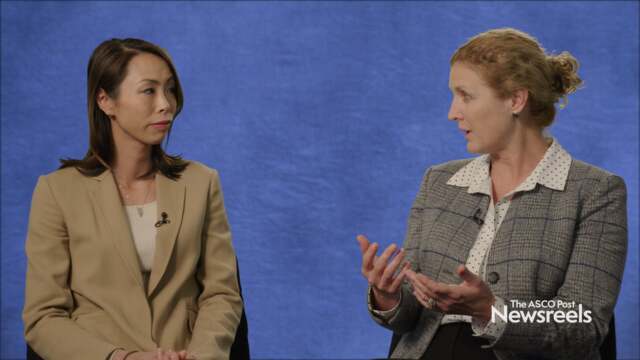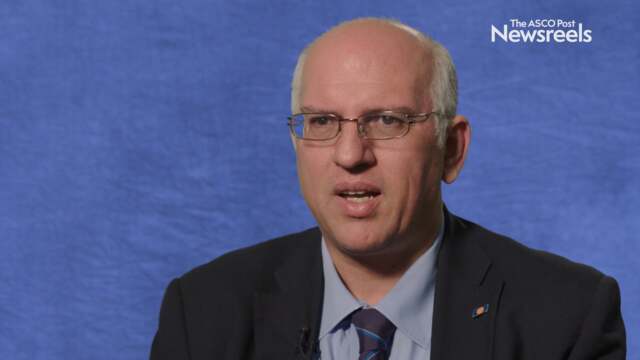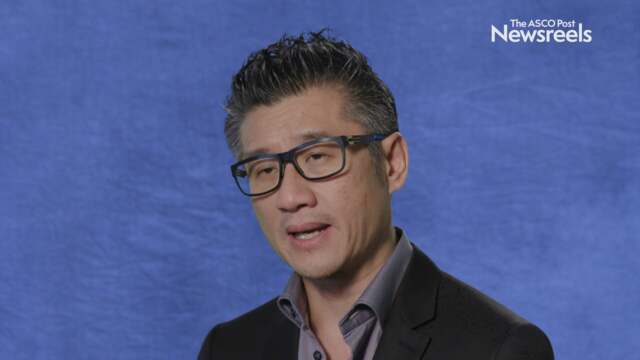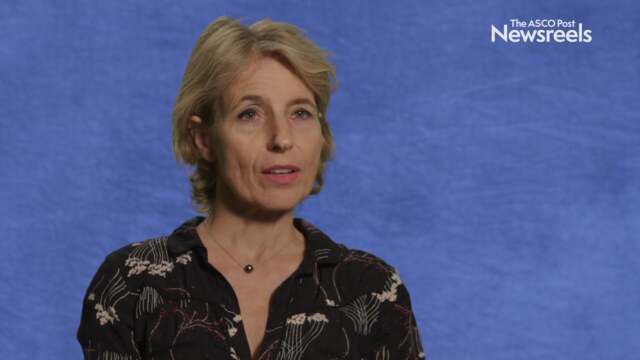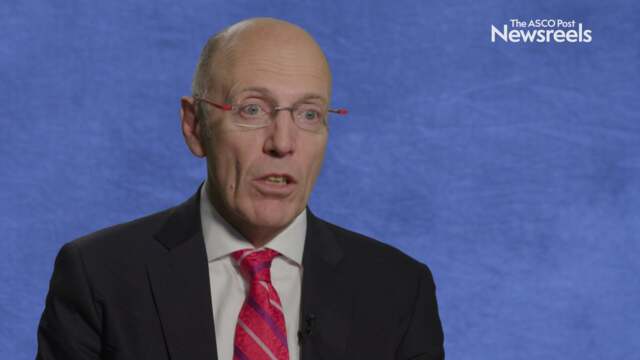Matti S. Aapro, MD, on Immunotherapy in Older Patients
ESMO 2018 Congress
Matti S. Aapro, MD, of the Genolier Cancer Centre, discusses the optimal treatment and supportive care for older patients with cancer, including the importance of maintaining dose density and intensity as well as monitoring toxicity.
Lisa A. Carey, MD, of the University of North Carolina, and Sherene Loi, MD, PhD, of the Peter MacCallum Cancer Centre, discuss the phase III IMpassion 130 trial testing the first-line combination of the PD-L1 inhibitor atezolizumab plus nab-paclitaxel in metastatic triple-negative breast cancer (Abstract LBA1_PR).
Paolo A. Ascierto, MD, of Istituto Nazionale Tumori–Fondazione Pascale, discusses the breakthroughs in melanoma treatment and the challenges of managing toxicities, especially endocrine and neurologic side effects, which can require lifetime hormone replacement and may cause permanent dysfunction.
Tony Mok, MD, of the Chinese University of Hong Kong, discusses two important studies in non–small cell lung cancer: FLAURA, which looked at the first-line activity of osimertinib and the mechanisms of resistance; and ALESIA, which examined crizotinib dosing.
Caroline Robert, MD, PhD, of Gustave Roussy Cancer Centre, discusses two high-impact studies in stage III melanoma treatment: an update of the COMBI-AD trial examining dabrafenib and trametinib; and neoadjuvant ipilimumab and nivolumab therapy.
Nicholas D. James, PhD, MBBS, of University Hospitals Birmingham NHS Trust, discusses study findings on treating metastatic castration-sensitive prostate cancer, including results on radiotherapy and abiraterone (Abstract LBA5_PR).
